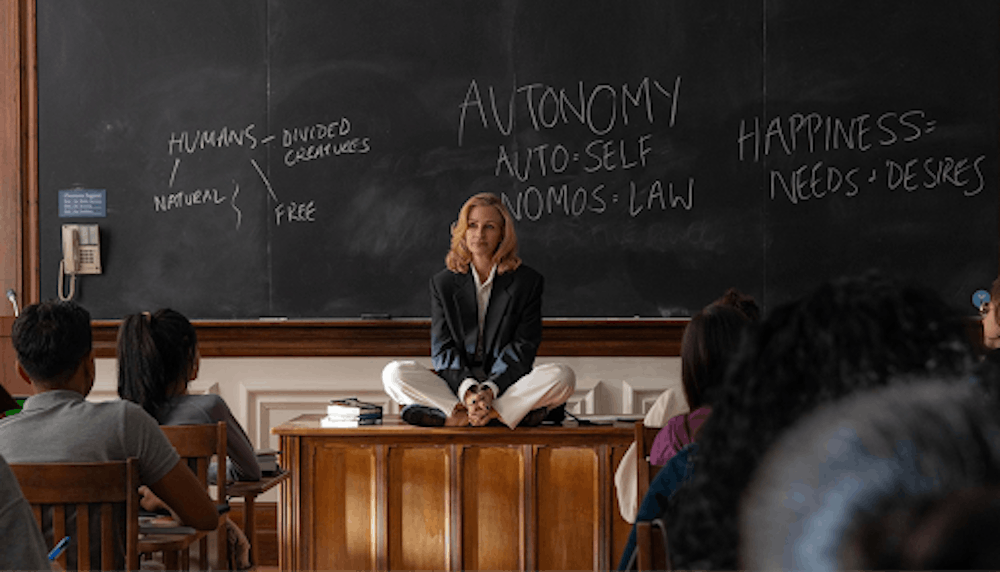By Mahnoosh Arsalan
Correspondent
Luca Guadagnino’s latest film, “After the Hunt,” is an immensely complex story with a not-so-great execution, yearning for profundity and in reality, existing as an attempt at an insightful anecdote.
Starring Julia Roberts, Ayo Edebiri and Andrew Garfield, the film follows a highly accomplished Yale professor whose life comes crumbling down after a beloved student of hers is sexually assaulted by a close colleague.
Roberts plays Alma, a renowned philosophy professor whose accolades rely on the fight for women’s voices in the workplace. A dark secret from Alma’s past lingers and becomes more intense throughout the film, ultimately changing Alma’s relationships with each individual in the film.
Roberts does an excellent job in portraying a rich, shallow, privileged woman, who is so heavily focused on herself she loses sight of the important people around her. She is an extremely shady and untrustworthy character, to the point where you’ll start thinking to yourself, “what is wrong with this woman?”
Garfield plays Hank, an assistant professor of philosophy who is notorious for flirting with his students and keeping them under his whim. He and Alma have a long history, and their friendship, though rocky, persists throughout the assault accusations.
Garfield presents Hank as a pretentious, condescending and insufferable human being and excels. Every single line delivery made the movie increasingly hard to watch.
Edebiri plays Maggie, a graduate student in Alma’s class, and Alma's favorite student. Edebiri’s portrayal of Maggie fell short as compared to Roberts as Alma and Garfield as Hank. Because Edebiri’s acting wasn’t convincing enough, I found myself unsure if her character was telling the truth or lying about everything.
Sexual assault is a very delicate subject, and a movie on it will be subject to a lot of critique based on its handling of the situation. However, Guadagnino aimed to emphasize the nuances behind survivor’s stories, especially when there is such a public following on them. In a situation so black and white, Guadagnino gives attention to the gray.
Unfortunately, it falls flat.
Rather than paying attention to seemingly important plotlines that ended up being disregarded, Guadagnino put a lot of focus on philosophical theories made by each character.
The film utilizes long scenes of the characters debating arguments proclaimed by different philosophers and analyzing their true meanings as a tool to mirror the characters current emotions and problems. An interesting concept, a poor execution, and an overall attempt at profundity.
Guadagnino is a talented and incredibly versatile director. From “Challengers” to “Queer,” he approaches character relationships with such care and intent. This was fortunately done well in “After the Hunt,” as he highlights the complexities of such a rough subject matter between three very close people.
Another highlight of the film was the cinematography. The way each shot was framed holds purpose, and the coloring exemplifies modernity, making the film feel relevant to today.
Guadagnino’s next film is titled “Artificial” with a star studded cast, including Andrew Garfield, Cooper Hoffman, Yura Borisov and Jason Schwartzman. It follows the CEO of OpenAI and his rise to fame.







